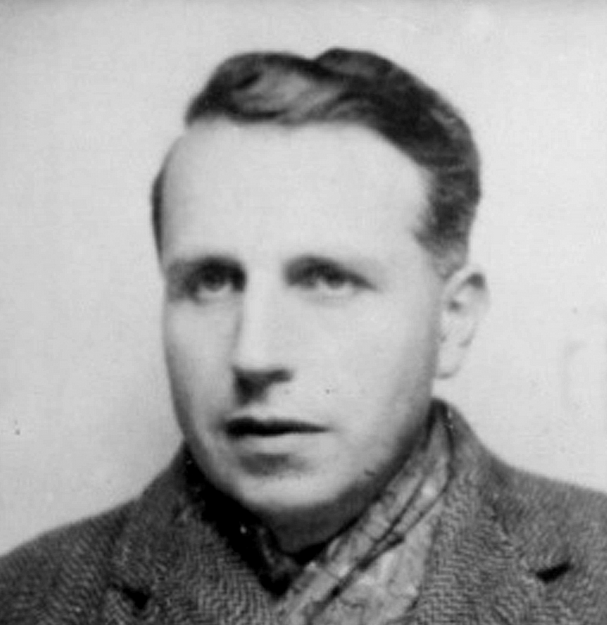Does the belief in a god go against dialectical materialism?
You can simply choose to be internally inconsistent like every other person in the world.
Yeah, please don’t turn this into a struggle session, everyone. OP’s been posting bait type stuff, but I don’t think they were here for the previous debates.
Thankfully, it didn’t turn out too bad. It might be nice to refer to this next time the topic is brought up.
In a sense yes, but remember that communist philosophy is rooted in Western philosophy which presupposes a Christian personal god and forms of faith or belief.
In other systems of thought, god and belief don't mean the same exact things. For example in Indian religions, god may mean a personal god, sometimes many, and faith or belief is approximately the same. But god can also mean the universe itself as an infinite spacetime, a fuller reality behind material reality, maybe even no god at all. Likewise belief is ranked as only one form, and a lower form, of knowledge with rational forms ranking higher.
On a practical note, the abolition of religion and its dregs does not always apply across the world as a solution for the proletariat. Which is why you may see communists who are eg. Hindu, Buddhist, Muslim, etc. outside the Western world.
Yes, every Christian Communist out there is either a liberal or a covert atheist. \s
No, and even if you take it as true that communism and religious belief are diametrically opposite (which others here have pointed out is not necessarily true), it's still possible for that unresolved contradiction to exist within a person's ideology. To treat them as mutually exclusive is itself anti-dialectical. There have even been religious deviations of Marxism.
I recommend Lenin's "The Attitude of the Workers’ Party to Religion" if anybody is conflicted over this. Some excerpts:
It cannot be asserted once and for all that priests cannot be members of the Social-Democratic Party; but neither can the reverse rule be laid down. If a priest comes to us to take part in our common political work and conscientiously performs Party duties, without opposing the programme of the Party, he may be allowed to join the ranks of the Social-Democrats; for the contradiction between the spirit and principles of our programme and the religious convictions of the priest would in such circumstances be something that concerned him alone, his own private contradiction; and a political organisation cannot put its members through an examination to see if there is no contradiction between their views and the Party programme.
[...] We must not only admit workers who preserve their belief in God into the Social-Democratic Party, but must deliberately set out to recruit them; we are absolutely opposed to giving the slightest offence to their religious convictions, but we recruit them in order to educate them in the spirit of our programme, and not in order to permit an active struggle against it. We allow freedom of opinion within the Party, but to certain limits, determined by freedom of grouping; we are not obliged to go hand in hand with active preachers of views that are repudiated by the majority of the Party.
On the other hand, the tradition of bourgeois war on religion has given rise in Europe to a specifically bourgeois distortion of this war by anarchism—which, as the Marxists have long explained time and again, takes its stand on the bourgeois world-outlook, in spite of all the “fury” of its attacks on the bourgeoisie. The anarchists and Blanquists in the Latin countries, Most (who, incidentally, was a pupil of Dühring) and his ilk in Germany, the anarchists in Austria in the eighties, all carried revolutionary phrase-mongering in the struggle against religion to a nec plus ultra. It is not surprising that, compared with the anarchists, the European Social-Democrats now go to the other extreme. This is quite understandable and to a certain extent legitimate, but it would be wrong for us Russian Social-Democrats to forget the special historical conditions of the West.
In short, there's a time and a place to struggle against religion.
Liberation theology inspired multiple guerilla movements like the FMLN in El Salvador. I believe those who think both are impossible is very foolish, cultural and indigenous practices are not taken into account.
The Soviet Union was not against religion they were against religious entities that were tools of the Imperialist machine.
Is the belief in a God and communist mutually exclusive?
Practically no, people can hold conflicting beliefs and still function. Also non-materialist kinds of communism aren't even incompatible with religion.
Does the belief in a god go against dialectical materialism?
Absolutely
A belief in something that isn't material does go against materialism, yes. However, I doubt you'll ever find someone with no conflicting opinions. Personal beliefs are only important if they affect material reality; you can be a religious Marxist (and keep in mind that not all religions involve the same kind of beliefs) as long as that doesn't influence your actions in a way that's negative for the working class
Many parts of the Bible are highly compatible with communism (rich people can’t get into heaven etc). There are many based people/groups who are religious like Ansar Allah and the Sandinistas. On the other hand, materialism does contradict religion. Some, like Breht from Rev Left have argued that Buddhist practices can help revolutionaries, and obviously we should support all progressive forces. However we should never fit miracles or god being on our side into our calculus regardless of what we believe. A materialist analysis is not compatible with religion, but cognitive dissonance exists.
I think communists should avoid orthodoxy and weird gate keeping. If you fight for what I believe, support liberation, advocate for a just and equitable society where the proles run shit and we push towards truly egalitarian society free of suffering, you are my friend and likely my ally regardless of what you believe or don't believe about God or gods.
Also, contradictions are inherent in all things, having a materialist view on the world while believing deeply in my diety is something I struggle with from time to time, but in the end, the contradictions don't stop me from being a Marxist, and for advocating and fighting for the world we all want, so it doesn't really matter I think.
Kinda. But not in any way you need to worry about in your lifetime.
Many religious teachings mesh with communism pretty well as far as their moral core goes. If you're willing to accept that the associated church or whatever holy office is a wordly organization run by fallible people and probably has a role in the exploitative shitshow of capitalism, you're good. That one seems to be a bit of a problem for some denominations though, like Catholics, what with the concept of papal infallibility. There are difinitely leftist movements withing Abrahamic faiths at least, which is hardly surprising, you wouldn't expect the sort of god they worship to be in favor of exploitation, really, it's just that you don't hear much about them, cause why would someone advertise them?
Watch 'The Gospel according to St Matthew', its made by an Italian communist, it only uses quotes from the bible.
In it he potrays Jesus not as a mythical figure, but a revolutionary like Castro or Mao who liberated his people from slavery. When you start realizing that Jesus was actually a revolutionary figure religious communism makes a bit more sense, as is very popular in Latin america.
Its not mutually exlcusive, id also read 'On the jewish question' by Marx.
Full movie: https://youtu.be/Ewzr-ioQ_9k
I found a YouTube link in your comment. Here are links to the same video on alternative frontends that protect your privacy:
Professing religious beliefs can sometimes be useful to gain social standing and do praxis more effectively













